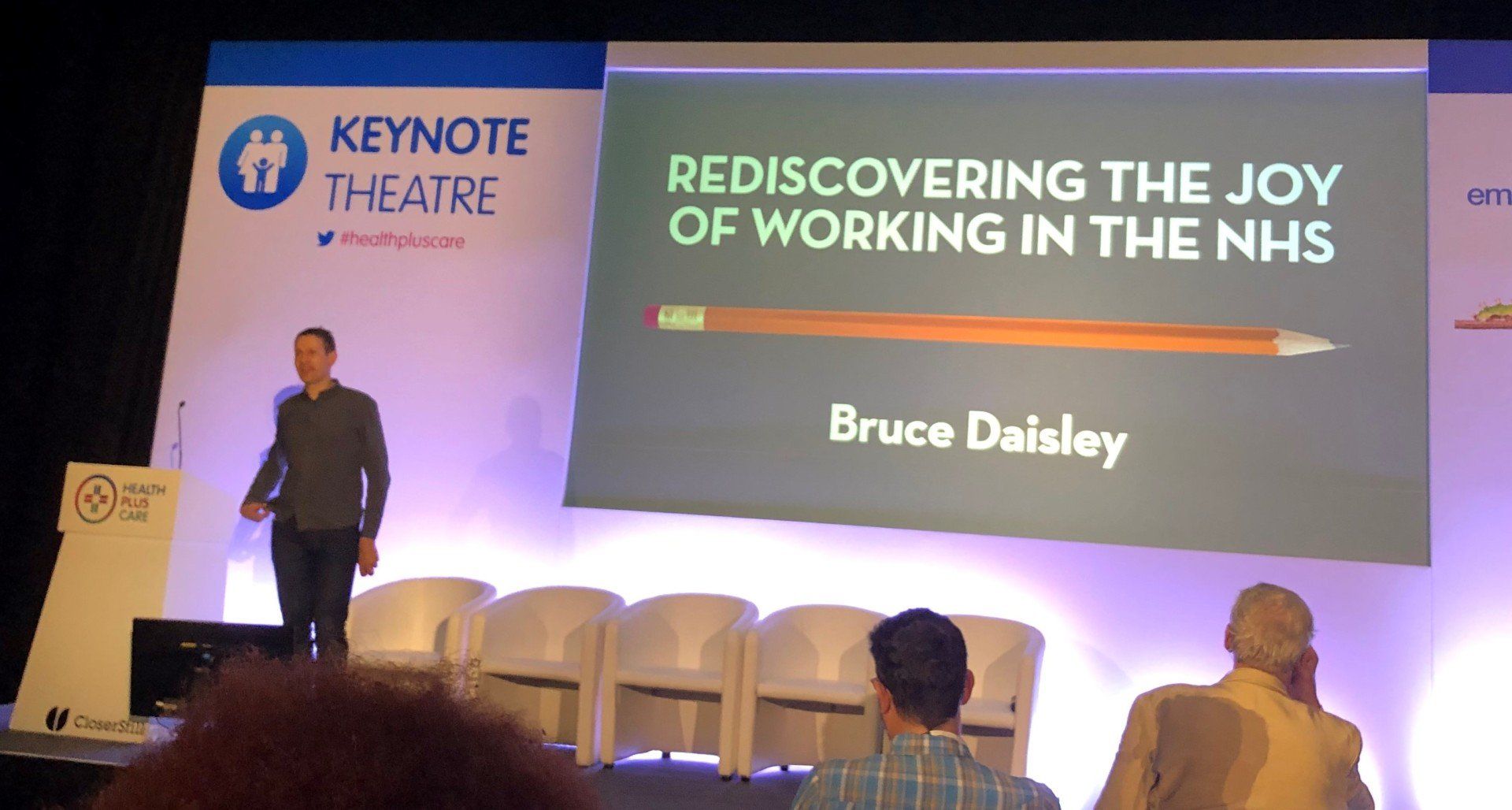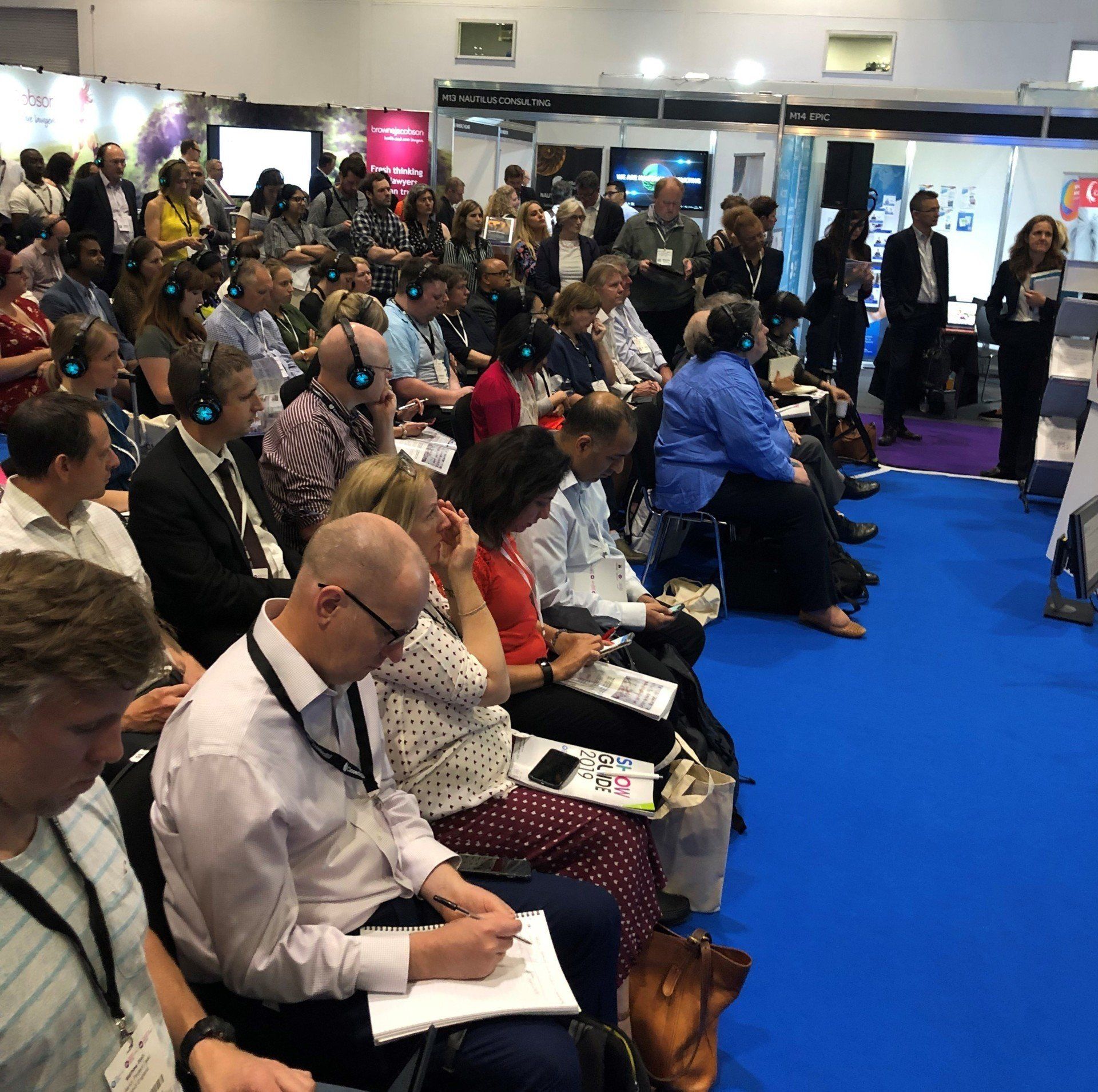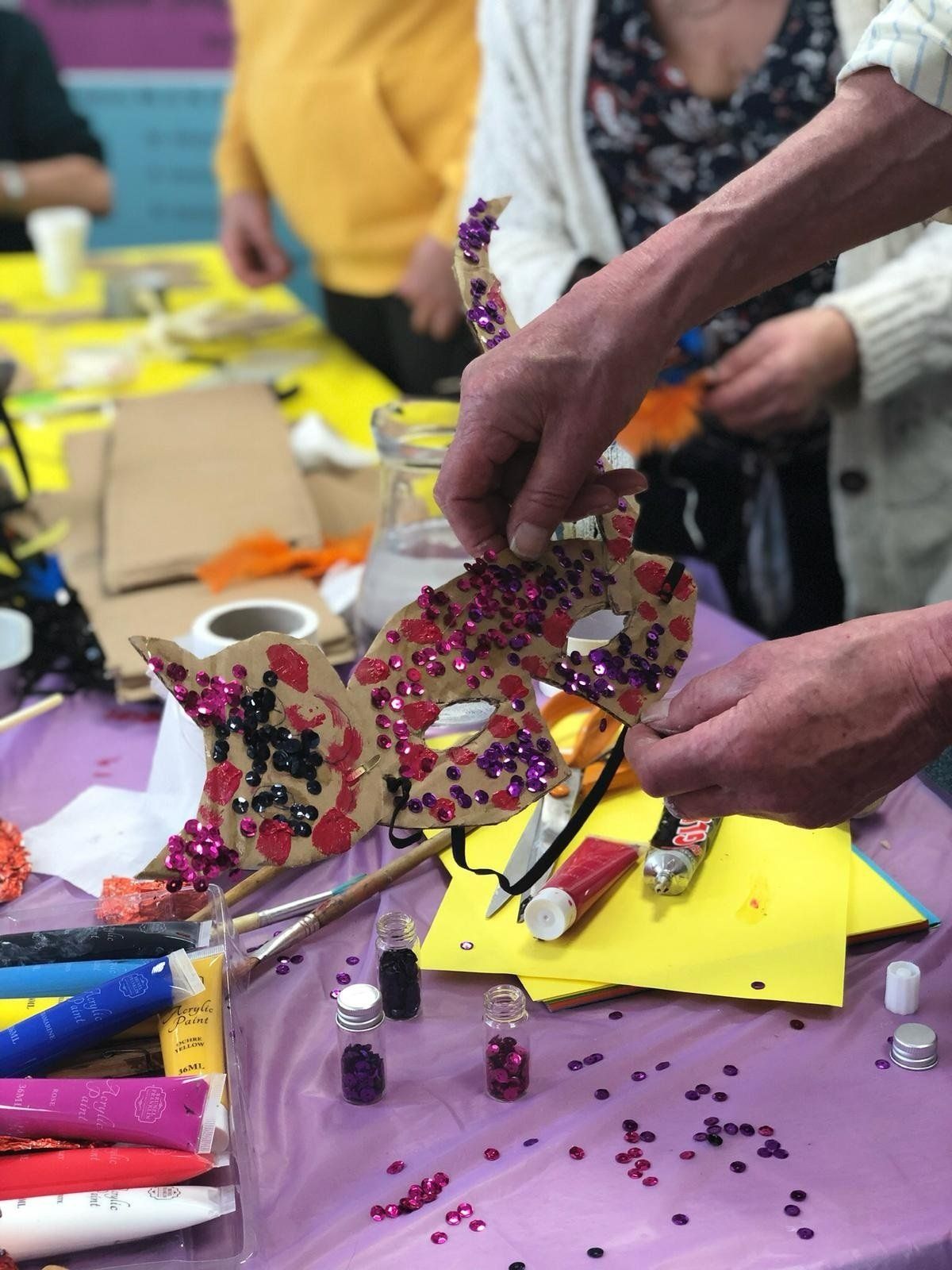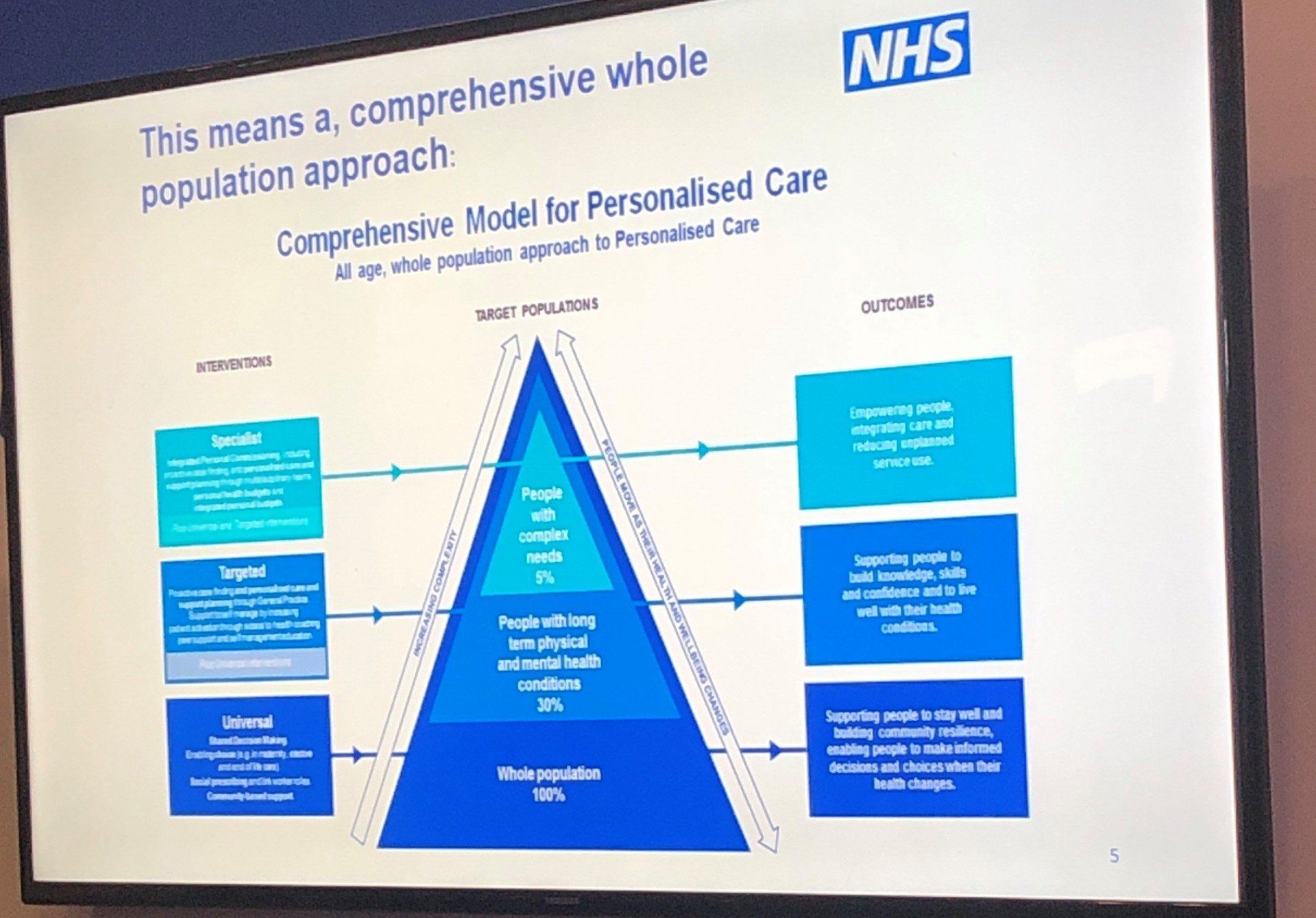Health+Care 2019 - Day 1 Summary
Our summary of a packed Day 1 - in case you missed it

It’s the last week in June, so of course we’re back at the Excel in London for the Health+Care annual conference where professionals from local authorities, NHS, providers and government come together to present ideas, thought leadership and share local initiatives on improving the health and care sector.
Here is my assessment of the first day:
The main themes were technology, social prescribing and more technology. Both of which were being touted as enabling collaborative working and effective care, with the main challenge being changing embedded cultures and habits.
A note from the Minister of State for Health

The day started off with a keynote address from Caroline Dinenage , Minister of State for Health, who used a great term to point out that health and social care are ‘ umbilically linked ’ and emphasised the need to ‘blur the boundaries’ between statutory, community and informal care through integration. A big fan of promoting local examples she explained the benefits of the community-based support group ‘Men Shed project ’ – a voluntary group of men coming together to support each other through joint interests and DIY, with the knock-on effect of creating friendships and decreasing isolation. Her excitement over Integrated Care Systems (ICS) and technology, was countered by, what appeared to be an honest frustration at the delayed Green Paper on social care. Some key messages from her included:
- A report by Department of Health and Social Care (DHSC) on their vision for technology and examples of using HIVE or Centrica technology and smartphones to help monitor and interact with people in their own homes.
- A £5m carers innovation fund , officially announced this month, with the aim of providing 'support for the supporters' to enable carers to stay healthier and happier for longer themselves
Psychological Safety

Later in the morning Bruce Daisley , twitter’s European Vice President turned on the charm with some hilarious cat humour from the twittersphire, but also made an important point about how a person’s mood has a direct effect on how they work. He pointed out that psychological safety, which I feel should and will have an increasing role to play in improving care services, is key to the duty of candour and dealing with errors in care. If anyone needs evidence, he pointed out that research by Amy Edmonson carried out in hospitals, revealed how safeguarding incidents were more likely to be reported by a psychologically safe team. You can read an article on it here
Lessons from integration - ICSs

At the Integrated Care Services Hub, Henry Ireland from Imperial College Health Partners gave what he called ‘boring innovation points’ which were in fact not boring at all. He emphasised the need for transparency from all professionals within ICSs in order for them to work successfully. His points included:
- relationship building
- allowing entrepreneurialism within the team
- shadowing other professionals and
- spending time together
It got me wondering whether the material structures that have been deconstructed in an aim to save costs, such as losing joint working spaces in favour of home-working, have in fact contributed to making ICS operability more difficult?
Also part of this talk was Alan Davies, Director of Digital Health at NW Coast AHSN. It's worth checking out their website as Alan had some interesting reflections into how ICSs change staff behaviours and how, as pointed out by Dido Harding from NHSE, social care is critically poor at dealing with its customers in comparison to other sectors such as retail.
The Green Paper, Social Prescribing and the Social Value Calculator

Just before lunch, the Residential Care Theatre became packed with care providers eager to get find out the future of social care. The panel consisted of Damian green , Michael Voges and Paul Burstow. Like Caroline Dinenage, Damian Green expressed frustration at the delayed Green Paper but argued that it required quality public debate which couldn’t happen in the current political climate and should include a cross-party solution. Interestingly, he claimed to favour a model of care funding based on a pension system model.
Even more interesting, Paul Burstow seemed to agree by suggesting a similar solution of an insurance model. Housing with care for Burstow was key, as well as self-directed care. He ended with the question of whether we actually need a Green Paper? In his view the sector has been extremely successful in solving the problems it faces by itself. He pointed out that the Care Act 2014 was a strong piece of legislation that simply needed more funding.

The afternoon started with an important message from Nicky Parker from Manchester City Council on new care models. She pointed out that representing social value was a growing trend for social care commissioning. So if you are tendering for contracts you need to have your organisation's social values policy locked down ! In fact 20% of the overall weighting in marking tender submissions is now dedicated to provider's ability to demonstrate their social value impact. The social value calculator is becoming an increasingly popular tool for local authorities and worth getting to grips with. Local authorities are starting to require new providers to register and actively engage with this new product. This video gives a short synopsis from one company operating a social value calculator.

James Sanderson ,Director of Personalised Care at NHS England (NHSE),gave an enlightening representation of transformation in action. Giving people using care services choice and control was key. He advocated the Comprehensive Model for Personalised Care. This included an operating model which comprised of
- Promoting shared decision-making between medic and patient (of which I’m a big fan)
- Giving people choice – he explained a process which seemed very similar to informed decision-making per Montgomery v Lanarkshire Health Board case
- Holistic care planning

Continuing the social prescribing message, James was a great supporter, especially where it mirrored what was actually happening in the community. His 5 year plan included self-managed support (peer support, health coaching and PAM – Patient Activation Measurement) and being bold in relation to cultural change
Other highlights included:
- David Hambleton explaining how New Zealand's Canterbury model of ‘care alliancing’ means focusing on what is right for the patient rather than the system.
- Raina Summerson , CEO of Agincare, making the great point that private providers (arguably the cornerstone of current social care provision) are currently not invited to strategic discussions around the local development of Primary Care Networks (PCNs) and ICS developments. Something that fundamentally needs to change. A huge elephant in the room.

With a lot of hype around PCNs, my (rather lengthy) last question of the day was to Simon Chapman , Deputy Director for Personalised Care, NHSE. I asked:
‘when pushing for social prescribing, what happens when the community and VCS organisations are oversubscribed? Where does adequate funding come from to support them and how do we ensure that people do not fall through the net? Will the PCN's newly created Social Prescribing Link Workers have enough capacity?!’
His answer was ultimately - to be honest we don’t know . However, he did make the point that social care needs to look outside of its immediate periphery for funding support. Sport England for example are looking to fund projects that help people engage with physical activities, Matt Hancock is looking at creating a social prescribing academy and I later discovered that you can apply for the Evidence Generation Fund to support digital products.
A great first day, but still so many questions on the other, even larger elephant in the room, also known as funding. Hopefully insights to be had on day 2. Three of us from @manorcommunity attended the conference this year. All three will contribute to an updated post for day two, so keep an eye on our blog page.
ps. don t forget to look out for the launch of the ‘ CARE BADGE ’!!! ….
The second part of this blog is now available here - listing more information and links from day 2.
Latest News from Manor Community
Manor Community Blog




























